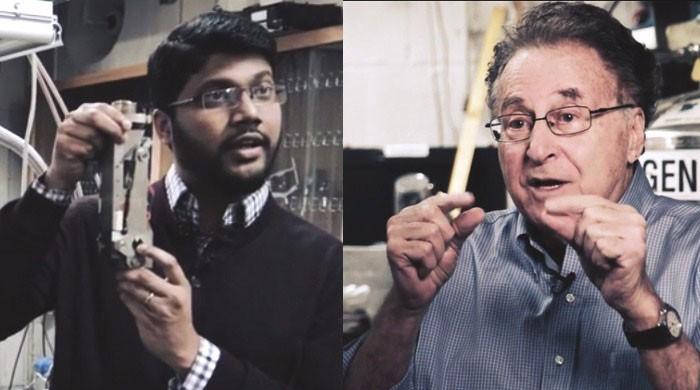Harvard scientists turn hydrogen into metal in revolutionary breakthrough

JAN 27, (DNA) -Alchemy has long been a topic of much curiosity and experiments since centuries, but Harvard University scientists have finally succeeded in turning hydrogen into metal in a revolutionary breakthrough in modern-day alchemy.
The experiment, a collaboration between lead researcher Professor Isaac Silvera and Dr. Ranga Dias, reveals that this breakthrough action – if applicable in real life following additional steps in the study – has the potential to revolutionise various areas such as technology and space transport. The study has been published in research journal Science.
The newly-made metallic hydrogen can be observed via two diamonds, which were used to compress liquid hydrogen at sub-zero temperature. The pressure required to do so was staggering, considering its magnitude was more than that present at the Earth’s centre.
Professor Silvera commented, “It’s the first-ever sample of metallic hydrogen on Earth, so when you’re looking at it, you’re looking at something that’s never existed before,” Independent reported.
However, the next step in this process is to check whether the metallic hydrogen particle can survive normal temperature, which is a key factor in determining its future usage. Critics believe it will rot away once the pressure and temperature are regularised, while the research team hopes for it to retain itself in the current state.
In this regard, Professor Silvera said it needs to be gauged whether it will be “similar to the way diamonds form from graphite under intense heat and pressure, but remains a diamond when that pressure and heat is removed.”
The scientists are all driven to not lend their minds to doubts, but rather focus on actual experimentation to see if this alchemical discovery can be made use of.
Professor Silvera added that 15 percent of the total energy dissipates in “transmission, so if you could make wires from this material and use them in the electrical grid, it could change that story.”
Related News

US pauses green card lottery program
News Desk WASHINGTON: US Homeland Security chief Kristi Noem ordered the suspension of the diversityRead More

Pakistan Libya Defence Cooperation Strengthened During Official Visit
RAWALPINDI, DEC 18 /DNA/: Field Marshal Syed Asim Munir, NI (M), HJ, COAS & CDF,Read More


Comments are Closed